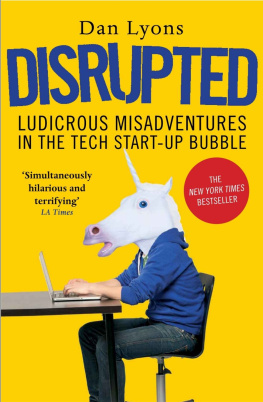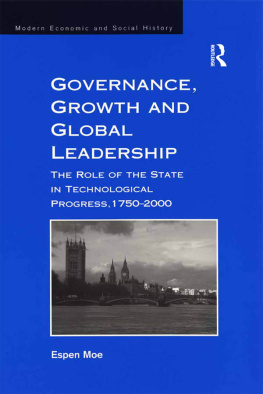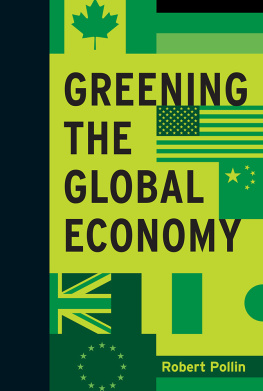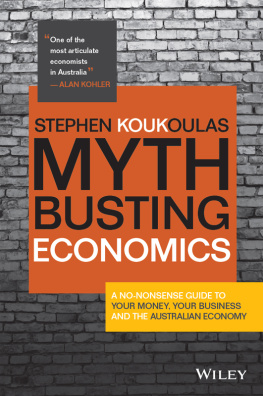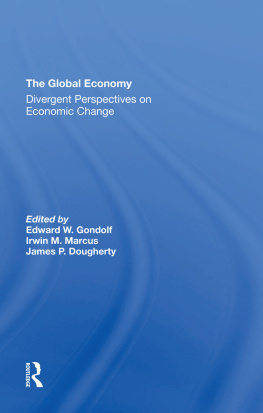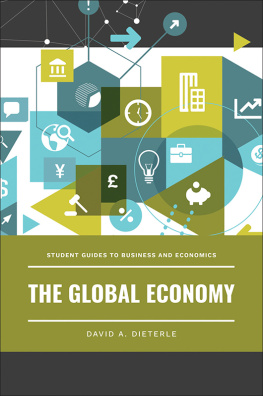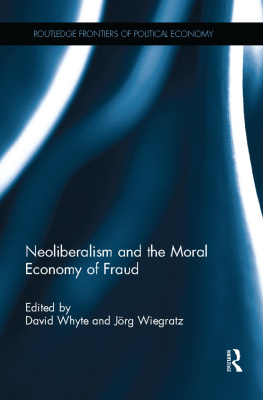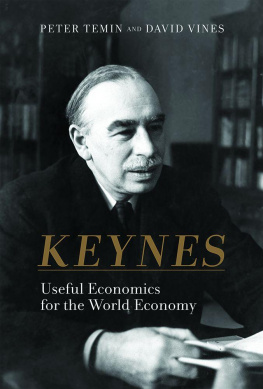Introduction
You are driving a car through beautiful countryside. There are trees and hills around you and the road ahead is straight. The weather is great; the car has an open top; the sun is shining. You are feeling good about the world. You put your foot down. The road dips and there are a few bumps but you dont take your foot off the accelerator . Why should you? After all, youre a great driver. The road starts to bend, gradually at first, then more sharply. What was a straight road is now a zigzag.
It looks dangerous but it seems easy to you as you swing round the hairpin bends. You relax a little too much, gazing in the rearview mirror, admiring the scenery behind you, letting your mind wander, oblivious to what lies ahead. You are not concentrating. Still you dont slow down. Now it is getting really dangerous.
More by luck than judgement you manage to keep the car on the road. The trouble is, you are not half the driver you think you are and the more you ask of the car the less it seems to respond. A crash is inevitable. The only question is when.
The 2008 financial crisis was like this. Beforehand, traders and investors were behaving like this driver. Some were behaving even more recklessly, as if they were driving blindfolded, buying and selling things such as collateralised debt obligations that they knew next to nothing about.
The 2008 financial crash left a big mess. The survivors sat by the side of the road waiting for someone to come along to sort it out. At the time, some observers thought they should be left there as a lesson to others, but the authorities decided to help them, fearing the consequences for everyone else if they didnt.
The survivors then saw something that they hadnt expected. Coming along the same stretch of road were a lot of new cars, from other parts of the world. They had to slow down sharply as a result of the crash but once they had safely navigated the scene they moved on, at a controlled speed, with some cars going faster and being driven more skilfully than the others.
The year 2008 was pivotal for the world economy and it is the starting point for the argument of this book. It was pivotal because it cast doubt on the economic model in the West and exposed deep flaws within our financial system. Much has been done since to make everything safer and more secure, although the fear of another financial crash remains. The year 2008 also highlighted the changing shape of the world economy and the emergence of new economic engines and motors of growth. It is the combination of these new ways of achieving global growth and the right economic lessons being learned by the West that should imbue us with confidence.
The years since the financial crisis of 2008 have revealed a divided and disconnected world economy that faces major policy dilemmas. The divisions are evident in the different growth rates between the East and West and between the periphery and the core of Europe. The imbalance is evident in high rates of youth unemployment in many Western economies and across large parts of Africa. It is also apparent in a squeeze in living standards in a number of countries, while, at the same time, a global elite is flourishing. In Western economies, dilemmas have included how to use policy to restore growth without triggering widespread panic because of high levels of debt and the unintended consequences of record-low interest rates.
Success has also brought challenges, such as how to channel global savings into financing future investment, or how to ensure that the many economies that have done well proceed with economic reform rather than take recent growth for granted. Even in the aftermath of the 2008 crash, the world economy has continued to grow. How can it be that a world economy so divided and disconnected and facing such dilemmas is still growing?
Policy plays an important role, as some of the post-crisis growth has been boosted by a combination of higher debt and increased leverage across the globe and ultra loose monetary policy in Western economies. This requires a focus on future exit strategies from low interest rates in the West and the correct approach globally for future economic policy. But it is not just policy. The outlook in any economy depends on the interaction between the fundamentals, policy and confidence, and the fundamentals are improving globally and confidence is recovering.
Reasons to be positive
There are many reasons to be positive about what lies ahead and how things are likely to play out. Hence this books title: The Consolations of Economics. Once we come to grips with what is driving the world economy, we might begin to see solutions to our economic challenges and great opportunities.
I wanted to write this book to challenge some misconceptions: that the West would suffer in the new world economy; that the East, or the new growth or emerging economies would always do well, and that we should be cautious about the global outlook. I felt this was far from the truth.
It is often suggested that the West will lose out in the future. But here it is vital to differentiate between relative and absolute. In relative terms, many Western economies might lose out, but in absolute terms they will still do well. This means that in terms of the global economic cake, the slice that goes to the West might be smaller, but there will be much more cake than before.
Here I outline that the trend for emerging economies is up, but that they will have setbacks along the way. In many respects the financial market volatility of mid-2013 and early 2014 reflected this, as many emerging economies were at the stage of the economic cycle where a pause for breath was needed, to prevent inflation or trade challenges from re-emerging, or to address credit growth. The business cycle exists in the East, as it does in the West, and it is important that inevitable setbacks do not divert attention from the strong, positive , underlying upward trend across many emerging economies.
The key message is that the world might be set to enjoy one of its most exciting periods of growth ever in coming decades. The size of the global economic cake will increase.
If so, there will be an explosion of activity across the emerging world and an economic renaissance in the US. It is hard to be pessimistic about the US, given its innovation and ability to reinvent itself. This outlook implies a strong but more sustainable pace of growth in China, and regions such as Africa and India realising some, but not all, of their potential for growth. Even Europe will blossom in this success provided it continues to make tough choices. It might seem surprising that this could be possible but, for all the challenges, there are also some extremely strong and positive economic developments in the offing. Many countries will continue to innovate and grow, and globally the economies that will succeed will have the cash, commodities or creativity.
Perspiration and inspiration
The key drivers of growth can be thought of as perspiration and inspiration: perspiration as populations and workforces grow; inspiration as investment and innovation occur, boosting productivity in the process. There is already evidence of new trade corridors, as more goods, commodities and people move around the world. There are more financial flows, as people working away from their own countries send money back home or people invest in markets overseas. These links will grow and flourish in a cats cradle of mutually supportive transactions and pathways.





